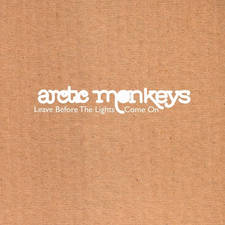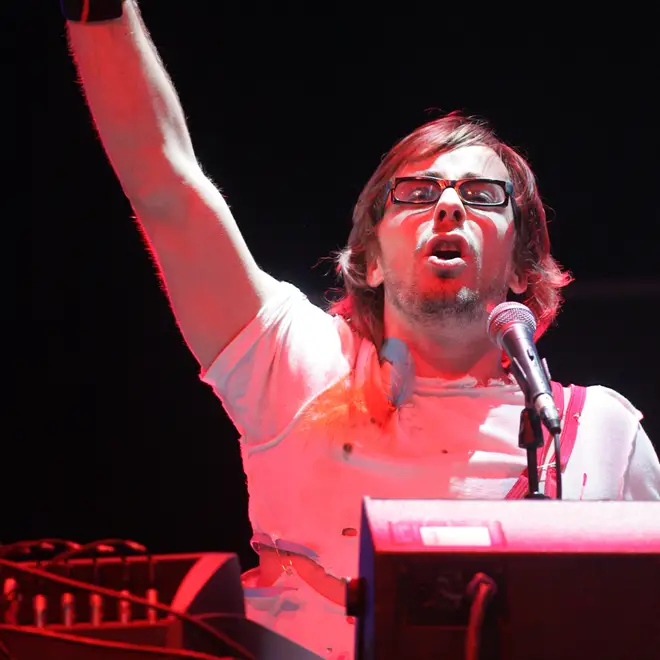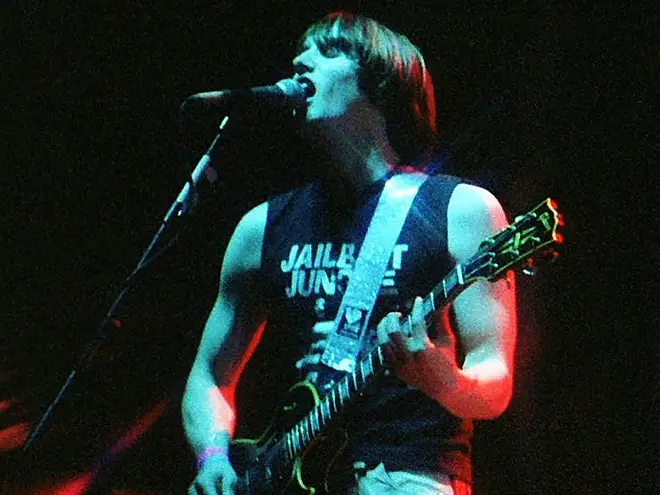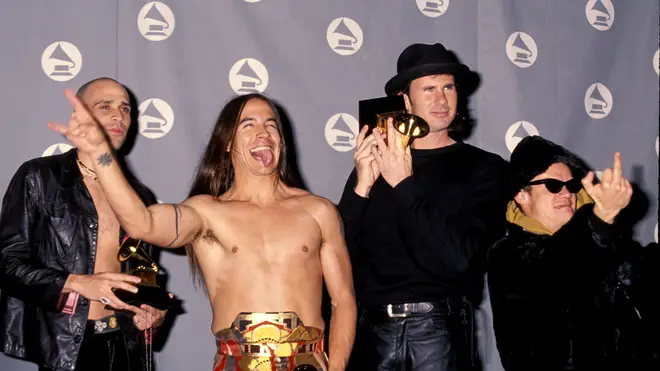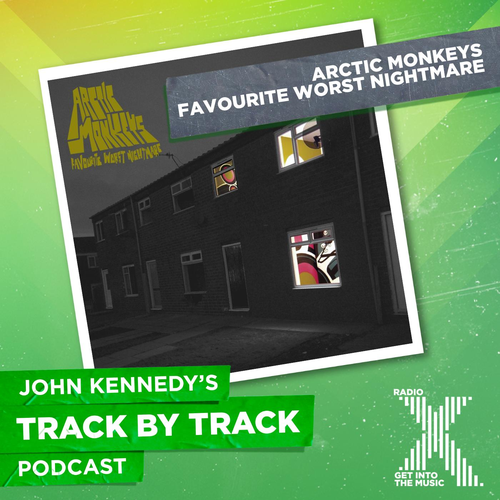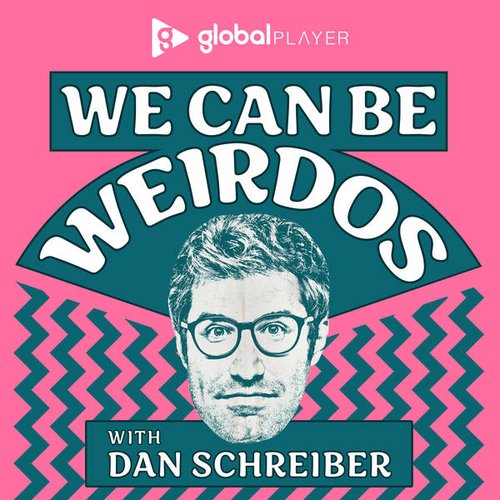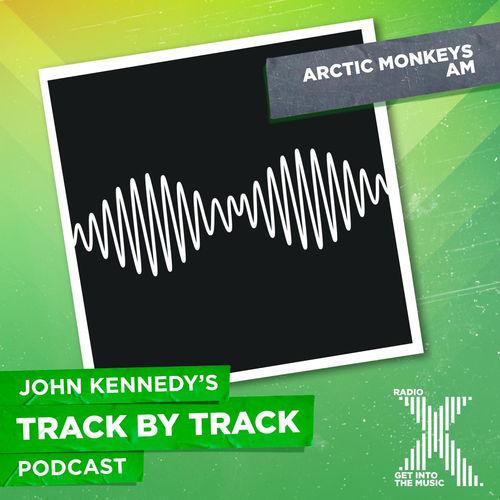When have Glastonbury headliners pulled out?
21 June 2023, 17:24 | Updated: 23 June 2023, 11:35
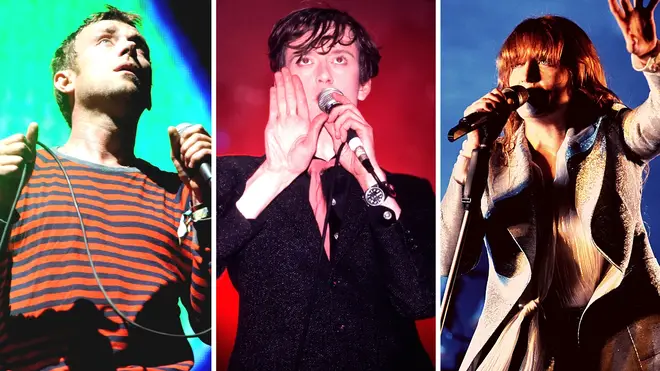
Is Arctic Monkeys' Pyramid Stage set in doubt? Here are the other times that headliners have been replaced at the last minute.
Emily Eavis has confirmed that Arctic Monkeys' Glastonbury set this weekend is still "on" - that's despite the band canceling a show earlier in the week after frontman Alex Turner was diagnosed with laryngitis. Phew!
She admitted, however, that the Glasto team had been looking at backup plans in case the worst happened.
But it wouldn't be the first time that the Glastonbury headliners have been replaced at the last minute.- , here are the other times the bill has changed at the eleventh hour...
-
2015 - Florence + The Machine replaced Foo Fighters
You may remember the time that Big Dave Grohl fell off a stage in Sweden and broke his leg. This was unfortunate, but equally unfortunate was that all this happened two weeks before Foo Fighters were set to headline Glastonbury. Luckily, Florence + The Machine were also booked and stepped into the slot to close the first night. Florence Welch performed Times Like These as tribute to the Foos, and in 2017, when he finally returned to Glastonbury, Dave Grohl repaid the favour by singing it back to her.

Florence + The Machine - Times Like These - Live At Glastonbury 2015
-
2010 - Gorillaz replaced U2
At 2010's festival, Irish mega-legends U2 were set to headline the Pyramid Stage on Friday night, but frontman Bono suffered from a "herniated disc" (ouch) and was in dire need of emergency back surgery. The ever-dependable Gorillaz, featuring Damon Albarn and friends, deputised and, to prove that you can't keep a good frontman down, Bono was back with the rest of U2 in 2011 to fulfil their promise.

Gorillaz - On Melancholy Hill (Live @ Glastonbury 2010)
-
2005 - Basement Jaxx replaced Kylie Minogue
Originally due to close the festival on Sunday night, the former Neighbours star turned pop princess was given a diagnosis of breast cancer that May, causing her to cancel the Glastonbury slot and her greatest hits tour. Basement Jaxx stood in for the star, covering Can't Get You Out Of My Head to wish Kylie well. Thankfully, the singer's treatment was successful and she finally appeared at Glastonbury as part of the Sunday Legends slot in 2019.
Basement Jaxx stand in for Kylie at Glastonbury 2005. Picture: Matt Cardy/Getty Images -
2002 - Coldplay replaced The Strokes
Chris Martin recalled how his band topped the bill at Glastonbury after they had only released one album. The frontman told the BBC how he got a call from Michael Eavis: "He said, ‘Chris, The Strokes have let me down'. I said: ‘That’s an amazing sentence to hear from Michael Eavis'. All he meant was they can’t make it the show, I don’t think they tried to screw him over." With their second album, A Rush Of Blood To The Head, released two months later, it was the gateway to superstardom for Coldplay.

Coldplay - The Scientist (Live at Glastonbury 2002)
-
1997 - Ash replaced Steve Winwood
It happened. 1997 was one of the muddiest years on record and the bad weather caused a number of cancellations from artists. Neil Young opted out of his Pyramid Stage appearance, leaving Kula Shaker to play their second set of the weekend, while Sunday night headliner Steve Winwood (of Valerie fame) gave way to young rockers Ash, who had already played The Other Stage on the Friday, but - luckily - hadn't gone home yet.
"We'd like to thank Steve Winwood for not showing up." Tim Wheeler of Ash at Glastonbury 1997. Picture: Pete Still/Redferns/Getty Images -
1995 - Pulp replaced The Stone Roses
One of the most iconic headliner replacements came when The Stone Roses had to cry off their headline set after guitarist John Squire broke his collarbone in a cycling accident. The slot was part of the Roses' big comeback after the release of their long-awaited album The Second Coming, but it was the beginning of the end and the band split the following year. Instead, the baton was symbolically handed to Pulp, who ensured that everyone remembered 1995 as the summer of Britpop with a triumphant set that ended with - of course! - Common People. The Stone who?

Pulp - Common People (Glastonbury 1995)
-
1993 - Lenny Kravitz replaced Red Hot Chili Peppers
The Chilis - then riding high off the success of Blood Sugar Sex Magick - were supposed to headline the Saturday night in '93, but Flea apparently contracted chronic fatigue syndrome, which led to all sorts of rumours in that turbulent part of the band's history. Instead, rock hero Lenny Kravitz, who was on the bill beforehand, stepped in to top the bill. The other headliners were The Black Crowes and "acid jazz" purveyors Galliano, so it can't have been that much of a blow.
The Chili Peppers at the Grammy Awards in February 1993, with the short-lived guitarist Arik Marshall on the far left. Picture: Jim Smeal/Ron Galella Collection via Getty Images -
1970 - Marc Bolan replaces The Kinks
Look, things even went belly-up at the very first Glastonbury! Young Michael Eavis contacted the manager of The Kinks, who agreed to appear at the very first "Pilton Pop Folk & Blues Festival" in September 1970, but when they realised that the organiser's day job was a dairy farmer and thought the event was going to be an embarrassment, they cancelled. Luckily, Marc Bolan, stepped in at the last minute and it was an opportune replacement as the singer was about to change his band's name from Tyrannosaurus Rex to T.Rex and released the iconic single Ride A White Swan, making him the UK's first glam superstar.
